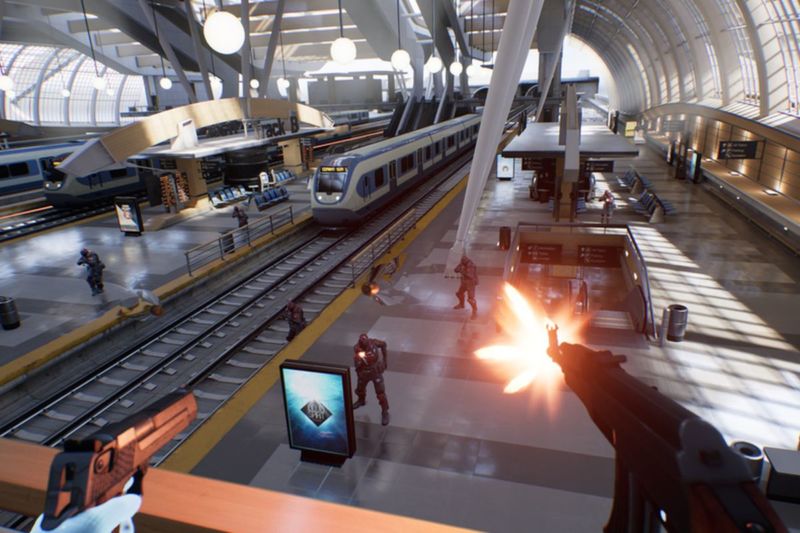
The Unreal Engine demo “Bullet Train” has been a standard part of Oculus’ trade show demonstrations for the Rift headset for many years now. But in the wake of a school shooting in Florida earlier this month, the violent, gun-based demo didn’t prove a good fit for the Conservative Political Action Conference in the Washington DC suburbs this weekend.
Sean Morrow, a producer for Now This News, noted the presence of the “VR shooting game” at Facebook’s CPAC booth in a widely circulated tweet late Friday. Within hours of the tweet, Facebook had responded by removing the demo from the conference floor.
“There is a standard set of experiences included in the Oculus demos we feature at public events,” Facebook’s VP for virtual reality said in a statement provided to Variety. “A few of the action games can include violence. In light of the recent events in Florida and out of respect for the victims and their families, we have removed them from this demo. We regret that we failed to do so in the first place.”
In a follow-up tweet that echoed a similar message, Barra added bluntly, “We got this wrong.”
The game industry has often struggled internally with how to market and display violent games following real-world mass shootings. In the wake of the Pulse nightclub shooting in 2016, Entertainment Software Association president Mike Gallagher told Ars that publishers at the Electronic Entertainment Expo were taking steps “to be sensitive to the national mood at the moment and those types of things.”
The “national mood” regarding video games and guns is more fraught than usual after a shooting that left 17 dead in a high school outside Boca Raton, Florida earlier this month. Politicians including Kentucky Governor Matt Bevin and President Donald Trump have tried to blame these kinds of shootings at least in part on the popularity of violent video games and other media.
National Rifle Association executive vice president and CEO Wayne LaPierre, who provided a fiery defense of gun-owners’ rights at CPAC, has also attempted to link real-world shootings with violent games and movies in the past. “Isn’t fantasizing about killing people to get your kicks really the filthiest form of pornography?” he said in 2012, following the Sandy Hook Elementary school shooting.
International comparisons of per capita spending on violent games and gun-related murders show a negative correlation between the two. And meta-analyses of video game violence studies have found no real link between imaginary on-screen violence and actual aggressive behavior.
Long-term longitudinal studies of children from the ’90s show only very minor increase in behavioral problems for children who played violent video games. But other research has shown that violent video game players actually do become desensitized to violence, at least in the short term.https://arstechnica.com/?p=1265877

